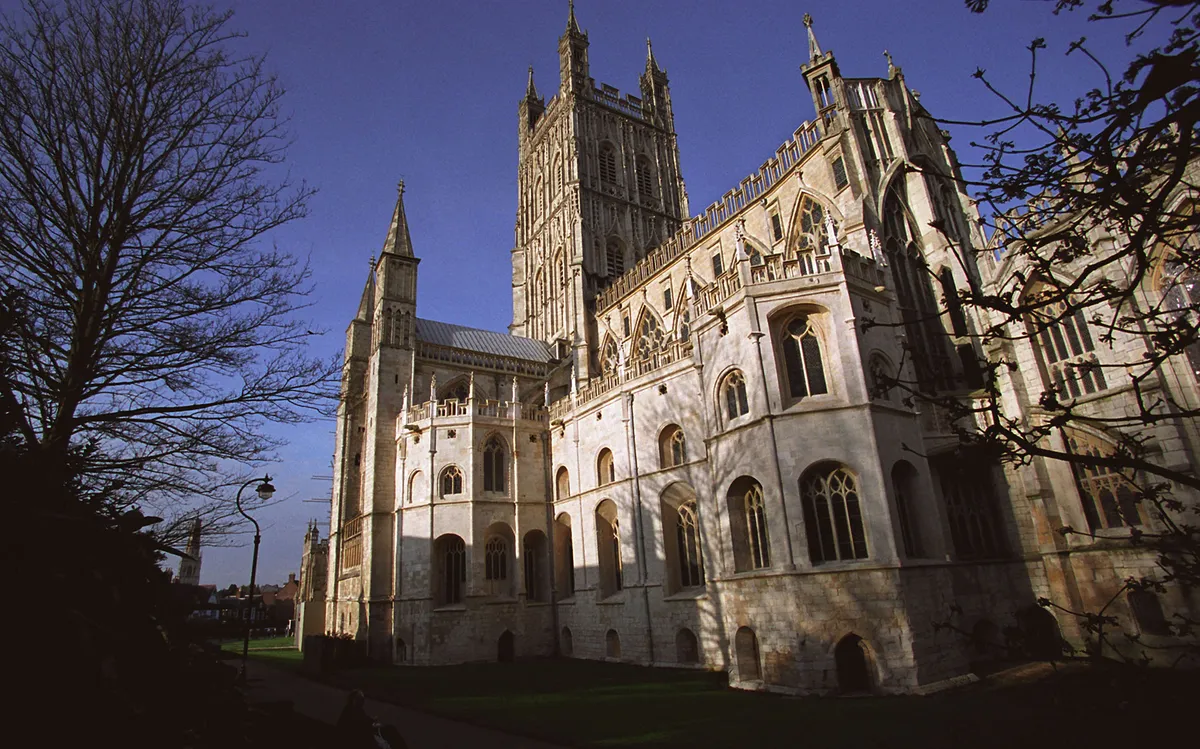‘A queer, mad work by an odd fellow from Chelsea.’ Herbert Brewer’s comment on hearing the premiere of Vaughan Williams’s Fantasia on a Theme by Thomas Tallis undoubtedly ranks as one of the more flippantly dismissive put-downs in music history.
Brewer was the organist at Gloucester Cathedral, where the Fantasia was first performed on 6 September, 1910 as part of the Three Choirs Festival. The new work was a Festival commission, and a large audience of 2,000 was present, mainly because Elgar was conducting his oratorio The Dream of Gerontius in the second half of the concert.
What inspired Vaughan Williams when composing the Tallis Fantasia?
While Elgar drew heavily on the orchestral palette of 19th-century composers such as Wagner and Richard Strauss, Vaughan Williams looked much further back in time for his inspiration. As co-editor of The English Hymnal (published in 1906) he had come across a set of tunes by the English Renaissance composer Thomas Tallis, written for the Archbishop of Canterbury’s Psalter (1567). One in particular caught Vaughan Williams’s attention – the tune to Psalm 2, ‘Why fumeth in sight: The Gentils spite, In fury raging stout?’
This solemn, timeless melody formed the basis of the Fantasia on a Theme by Thomas Tallis. The style of ‘fantasia’ Vaughan Williams adapted as a model was not the full-blown tone-poem of the Romantic era, but the more intimate type that composers like Purcell and Locke had written for string consort in the early Baroque period. Vaughan Williams’s Tallis Fantasia was accordingly scored for strings only, using two main groups of players plus a quartet of soloists.
What was the reaction to the Tallis Fantasia?
Vaughan Williams was 37 when he conducted the Fantasia’s premiere, and most of his major masterpieces were yet to be written. How would the audience react to this new piece by a composer whose reputation was in large part still to be established? Would a work which drew so obviously on the past strike listeners as disappointingly retrograde, compared to the ‘progressive’ music of Schoenberg and Webern?
Much of the reaction was, in fact, in the opposite direction. In the audience that evening were Herbert Howells and Ivor Gurney, both aspiring young composers. Howells was thunder-struck by what he heard in the Tallis Fantasia. ‘For a music-bewildered youth of 17’, he later wrote, ‘it was an overwhelming evening, so disturbing and moving that I even asked RVW for his autograph – and got it!’ Howells and Gurney walked the streets of Gloucester into the early hours that night, excitedly debating what the Tallis Fantasia might mean for the future.

Press reaction was enthusiastic, too. The Manchester Guardian immediately recognised that the Fantasia was something special – ‘quite out of the ruts of the commonplace’, as its reviewer put it. The Daily Telegraph agreed, calling the piece ‘extremely beautiful to such as have ears for the best music of all ages’. That timeless quality also impressed the critic of The Times, who found the new work ‘full of the visions which have haunted the seers of all times’.
These predictions that the Tallis Fantasia would stand the test of time have proved accurate. The work’s superbly evocative string writing, drenched with memories of a golden past and luminous in texture, has gradually come to define the idea of ‘Englishness’ in music. It is surpassed only by The Lark Ascending in lists of Vaughan Williams’s most popular pieces.
‘The work has the solidity and grandeur of a cathedral, to which its strains seem to belong by a natural affinity,’ one commentator has written. ‘It has passed into the repertory of all the great orchestras of the world.’
Also in September 1910…
2nd The French painter Henri Rousseau dies in Paris, aged 66. A self-taught artist who did not take up painting seriously until his 40s, his best-known works such as The Sleeping Gypsy and Tiger in a Tropical Storm were often dismissed by critics but admired by his fellow artists. Rousseau was also a keen composer, whose works included Clémence, a waltz for violin and mandolin.
11th Sufficiently wealthy from his career as an actor to take up flying, Robert Loraine comes agonisingly close to making the first successful crossing from Britain to Ireland. Flying a Farman biplane, Lorraine is within sight of the coast at Howth Head when his engine cuts out and he plunges into Dublin Bay. He swims to safety and his plane is later recovered.
12th Richard Strauss, Saint-Saëns and Webern are in the audience as Gustav Mahler (pictured) conducts the first performance of his Symphony No. 8 at the Neue Musik-Festhalle in Germany. The huge choral and orchestral forces needed to perform it give impresario Emil Gutmann the idea of calling it the ‘Symphony of a Thousand’ to help ticket sales, though Mahler doesn’t approve.
22nd The Duke of York’s Picture House, one of the first cinemas in the world, opens in Brighton. Built on the site of the old Amber Ale Brewery, it is founded by the former actress Violet Melnotte who, since 1885, has also been a leading theatre manager. Melnotte and her husband, actor Frank Wyatt, also own the Duke of York’s Theatre in the West End.
25th The New York Times reveals that Puccini’s new opera La Fanciulla del West is to be premiered at the city’s Metropolitan Opera in December. As Puccini is currently the world’s most in-demand opera composer, the premiere is something of a coup for the Met, which is less than 30 years old. A starry cast including soprano Emmy Destinn and tenor Enrico Caruso is lined up for the production.
Read more: A guide to Vaughan Williams's Fantasia on a Theme of Thomas Tallis and its best recordings